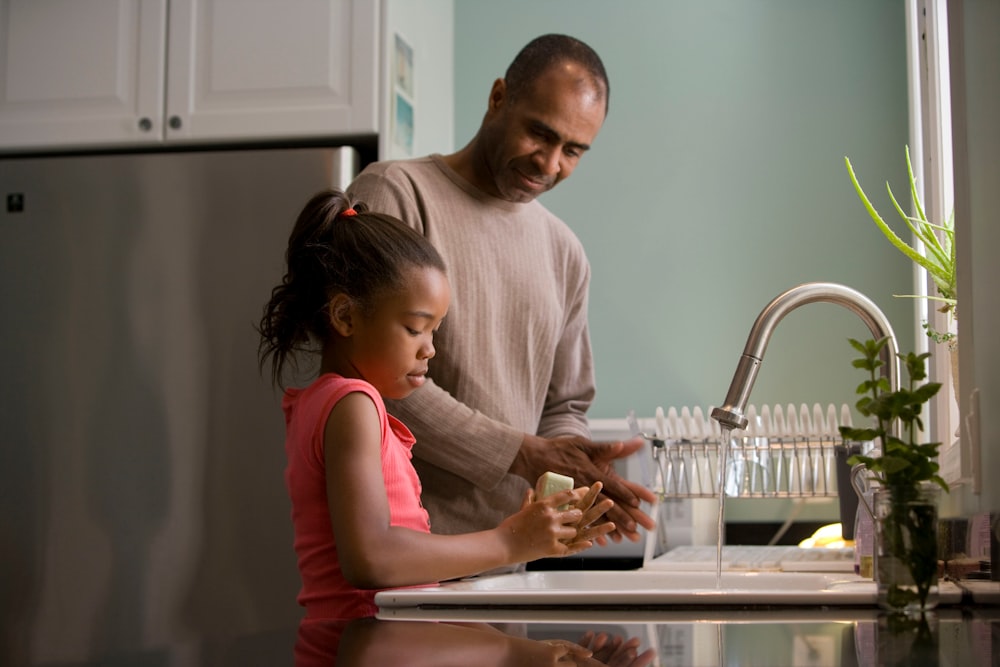Written by Rian Gordon, Updated August, 2021
Wedding night jitters are a REAL THING — especially if you are a virgin. I grew up in a very conservative and highly religious community where most parents encourage their children to wait until marriage to have sex. This is something that I am proud of and very grateful for, since waiting until marriage was exactly the right choice for my husband and I (there are lots of emotional, mental, and physical benefits to waiting for sex) (Abbott, White, & Felix, 2010). However, when parents are concerned about their children waiting to start having sex until they are married, they often unintentionally (or intentionally) create a lot of unnecessary fear and worry in their children about the subject (Brotherson, 2015). I was lucky enough to have parents and teachers who were helpful at educating me about sex in a healthy way, but I know that is not the case for everyone (click here for information on how to have healthy conversations with your kids about sex). In this post, I intend to hopefully take away some of the nerves you may be feeling about your wedding night and empower you to have a wonderful, joyful, and unifying experience with your spouse when you make love for the first time.
Warning: This post will most definitely contain words that might make some people a little uncomfortable. I get pretty candid here, but I promise to avoid being explicit. Just be prepared for some good, honest talk about sex.

– Before –
Do Your Research!
Something that can really help when it comes to preparing for your wedding night is doing a little research beforehand. Having regular exams with your doctor can help you be physically ready and identify any potential problems you may encounter (Note: It’s a great idea to get these exams yearly. You do NOT have to be getting married to have a physical with your doctor). Talk with your fiancé and doctor about your expectations about family planning, and make sure you have everything you need if birth control is in your plan (be aware that some methods can take some time before they start working). Books and classes can also be a great resource to help you learn more about how to prepare for sex. If you are in school, check and see what marriage preparation or healthy sexuality classes they might have available. If you are finished with school, or if there aren’t any available at your school, check and see if the community offers any sort of classes or workshops for engaged couples. Online courses are also a great option.
There are all sorts of different books on sex and lovemaking, but here are a few that I have liked, and that have been recommended by marriage and sex therapists:
-
Sexual Wholeness in Marriage: An LDS Perspective on Integrating Sexuality and Spirituality in our Marriages by Dean Busby PhD, Jason Carroll PhD, and Chelom Leavitt JD MS
-
Sheet Music: Uncovering the Secrets of Sexual Intimacy in Marriage by Dr. Kevin Leman
-
You, Me, and We: A Practical Guide to Marital Intimacy by Dr. Anthony Hughes PhD
-
A Celebration of Sex for Newlyweds by Douglas Roseneau
-
What Your Parents Didn’t Tell You about Sex: An LDS Guide to Sexual Intimacy by Dr. Anthony Hughes PhD
-
The Act of Marriage: The Beauty of Sexual Love by Tim and Beverly LaHaye
-
And They Were Not Ashamed: Strengthening Marriage through Sexual Fulfillment by Laura M. Brotherson CFLE
Photo by Seven Shooter on Unsplash
It may be a good idea to read books (especially very descriptive ones) separately before your married, since reading about sex can really turn you on. If this happens to you, just be aware that it’s normal, and it’s good! You want to be excited about being with your spouse! Just be aware of how sexual materials affect you, and make choices that will help you reach your personal and couple sexual goals.
Note: Not all of the information in each of these books may be applicable to you. Take what you need, and run with that.
Talk About Expectations
Expectations can make or break a relationship, and they are particularly important when it comes to having a successful wedding night. Before the day of your wedding (I would recommend the day before, but talk about what will work best for you as a couple), it is a REALLY good idea to talk with your fiancé about how you would like your first night of wedded bliss to go. Talk about timing, what to wear, foreplay, how you would like intercourse to play out, whether or not you would even like to try having intercourse the first night, etc. It sounds counter-intuitive, since Hollywood has really made it look like spontaneity makes for the best sex, but talking about it beforehand can help to get rid of any of the fears or worries that you are both having, and it can help you to work together as a couple to meet each other’s expectations.

Remember There’s a lot more to be Excited About
Despite all of the hype, keep in mind that sex isn’t the only thing to look forward to in marriage! Take some of the pressure off yourself and your partner by focusing on some of the other benefits of tying the knot. Keep dating, keep getting to know each other and having fun together, keep building trust, and keep strengthening your partnership as a couple (remember that great sex isn’t the only thing that makes a great marriage!).
– The Night Of –
Take Your Time
Once you get to the hotel, don’t feel like you have to rush right into things. It’s okay to take some time to get comfortable with the fact that you can do more than just kiss each other. Be open about the expectations that you discussed, and be willing to be flexible with them as feelings or desires may have changed now that the moment is actually here. Foreplay (such as undressing each other, taking a shower together, giving each other a massage, etc.) can be really helpful in helping you both relax and get into the mood. Remember that most women take at least 4x as long as men to get warmed up and ready to go (Busby, Carroll, & Leavitt, 2013)! Because of this, it can be a good idea for the woman to dictate timing — especially since intercourse can be a little painful the first time** (don’t let this scare you! Getting to know your body and talking with a doctor can help you determine what you can personally do to help your body prepare so that pain is minimal. One of them is using lots of lubrication). Also, do not get discouraged if ejaculation happens before you can get to intercourse. That is pretty common, particularly for virgins. Wait a little bit, keep enjoying each other, and try again later, if you like.
You should also realize that although orgasm is most often associated with penetration, it’s actually clitoral stimulation, not penetration, that leads to orgasm for most women (Nagoski, 2021). This is a biological sexual difference that can help husbands and wives attend to one another and practice selflessness and mindfulness in lovemaking. Take the time to discover one another’s preferences, and be patient as you try different things and learn what works best for the both of you.
** Although there may be a small amount of pain the first time penetration occurs, please be aware that sex is not meant to be a painful experience! If the pain persists, and you find that you cannot relax and enjoy intercourse, consider consulting with your OBGYN.
It’s Messy
This is the part of sex that the movies never tell you about. There is often a little bit of blood after first-time intercourse. Semen is also gloopy and dries sticky and, depending on what birth control you are using, it can make a bit of a mess. Be sure to lay out a towel if you want to be able to sleep in your wedding bed sheets. Packing some disposable wipes in your honeymoon luggage is a good idea. It is also a good idea for women to go to the bathroom and urinate after intercourse to help with cleanliness and prevention of urinary tract infections, and to help keep things clean. But don’t feel like you have to do this immediately. Feel free to cuddle first!

Also be aware that you or your partner might make weird noises while you’re having sex. Releasing your inhibitions and completely relaxing together may bring on sounds that you didn’t know you could make. This is totally normal, and is all part of the fun. Don’t worry too much about making a silly noise, and if a noise that your partner is making turns you off, or makes you feel uncomfortable, find an appropriate time to kindly talk with them about it (just like you would with any other aspect of your relationship).
It Doesn’t Have To Be Perfect
The goal of your first time is not to end with both of you in simultaneous orgasm. The goal is to express your love for one another, be open with each other, and to explore each other. Don’t feel like your first time having sex together has to be perfect in order for it to be a wonderful and valid experience. Your first time does not determine the health of your future sex life. Be open to helping each other, feeling a little bit vulnerable, and maybe even giggling together as you try something totally new for the both of you. And remember — practice makes perfect!
– After –
Sex is an Ongoing Conversation
The key to having a great sex life is not hot young bods, spontaneity, or forbidden romance — the key is communication and continuing to get to know each other over time (Busby, Carroll, & Leavitt, 2013; Gottman, & Gottman, 2016; Leman, 2008). This is true from your first time making love, all the way through to the end of your life! Don’t ever stop talking with your spouse about your sexual needs and desires. Keep up an honest and open ongoing conversation about what you like or don’t like, how often you’d like to have sex, things you might like to try, whether or not your needs are being met, etc. These needs change over time, and expecting your spouse to read your mind (even after years of being together) is not realistic. Keeping the conversation going will help keep both your emotional and your sexual relationship strong, and will help you to continue to keep the spark alive throughout your marriage.
 If you aren’t yet married: Write down hopes and expectations that you have for your wedding night. How would you like things to go?
If you aren’t yet married: Write down hopes and expectations that you have for your wedding night. How would you like things to go?
If you are married: Put into practice the principle that sex is an ongoing conversation. Have fun practicing making love with your spouse, and then talk about it! 🙂
References
Abbott, D., White, J., & Felix, D. (2010). NOT READY FOR SEX: An Endorsement for Adolescent Sexual Abstinence. International Journal of Sociology of the Family, 36(2), 159-179. Retrieved from http://www.jstor.org/stable/23028827
Brotherson, L. M. (2015). And they were not ashamed: Strengthening marriage through sexual fulfillment. Boise, ID: Inspire Book.
Busby, D. M., Carroll, J. S., & Leavitt, C. E. (2013). Sexual wholeness in marriage: An LDS perspective on integrating sexuality and spirituality in our marriages. United States.
Gottman, J. M., & Gottman, J. S. (2016). The man’s guide to women: Scientifically proven secrets from the “love lab” about what women really want. New York City, NY: Rodale Books.
Leman, K. (2008). Sheet music: Uncovering the secrets of sexual intimacy in marriage. Carol Stream, IL: Tyndale House.
Marturana, A. (2018, May 07). Is It Actually That Important To Pee After Sex? Retrieved from https://www.self.com/story/is-it-actually-that-important-to-pee-after-sex
Nagoski, E. (2021). Come as you are: The surprising new science that will transform your sex life. Simon & Schuster Paperbacks.
Sandfort, T. G., Orr, M., Hirsch, J. S., & Santelli, J. (2008). Long-term health correlates of timing of sexual debut: results from a national US study. American journal of public health, 98(1), 155–161. doi:10.2105/AJPH.2006.097444




















